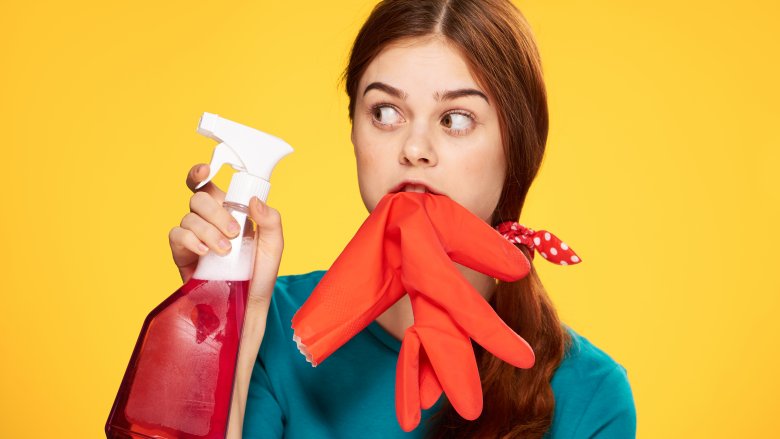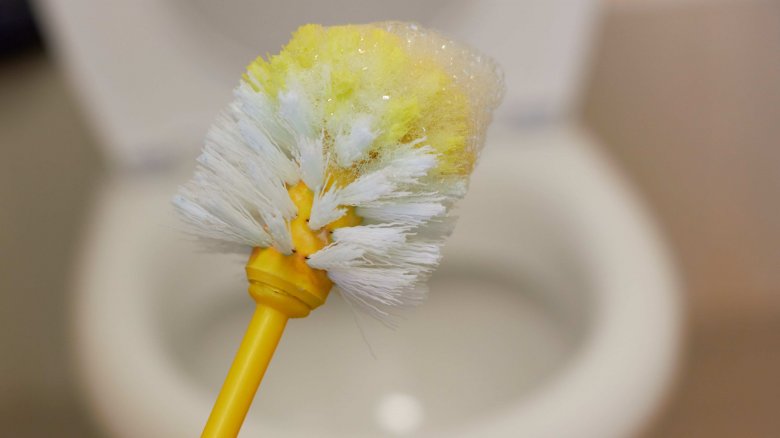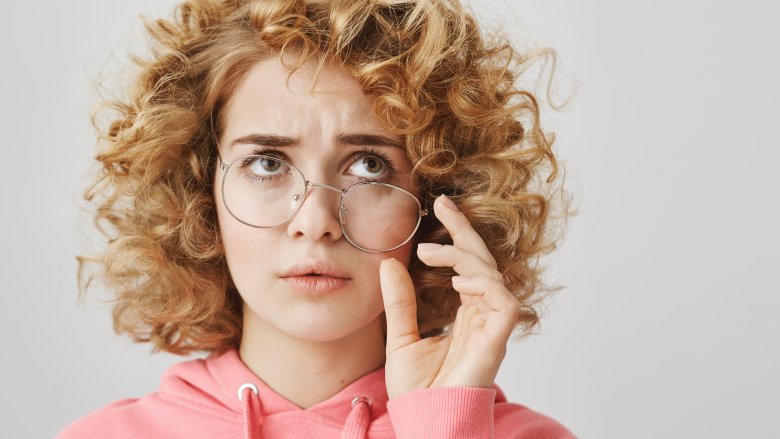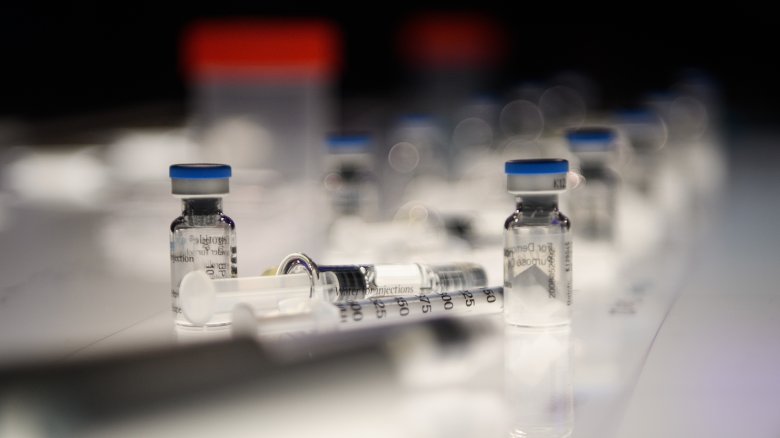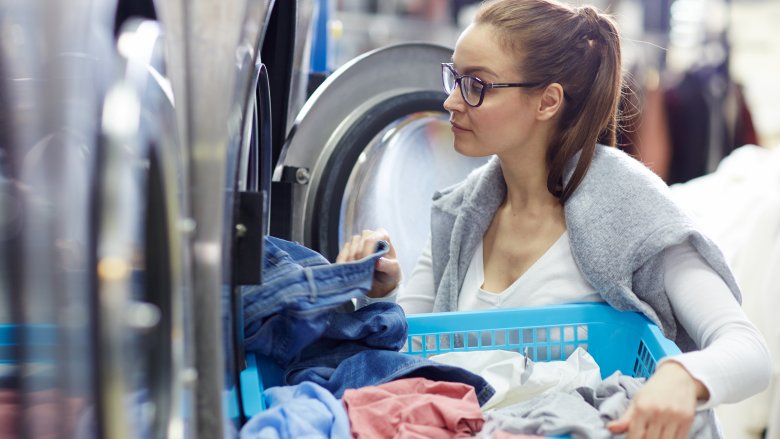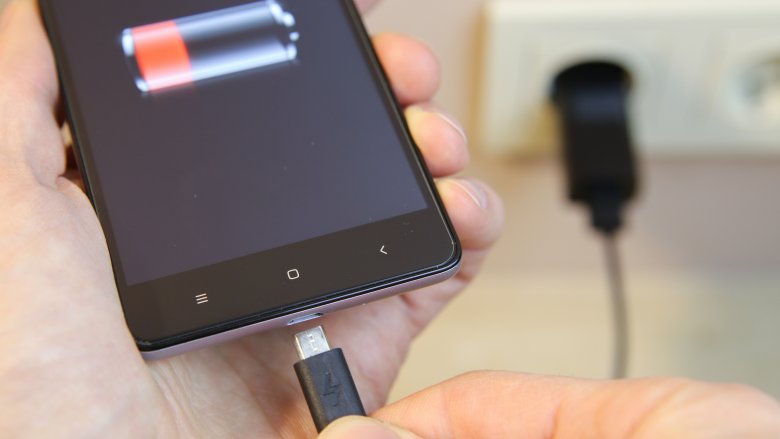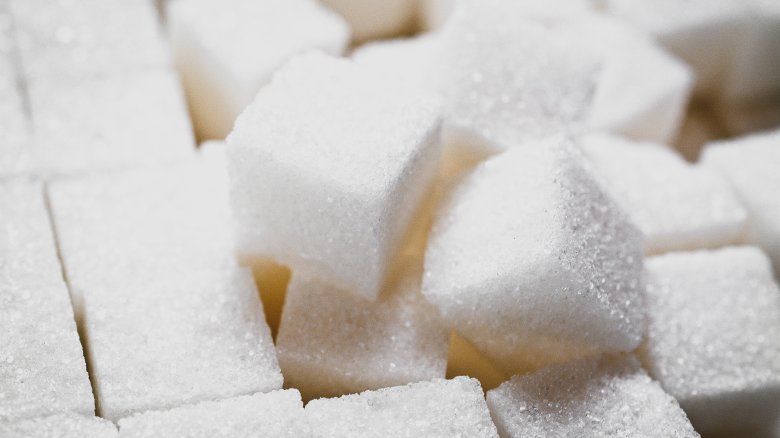Things That Are Normal Now That Will Be Ridiculous In 50 Years
Technology has made our lives so much easier. Who could have dreamed that one day we'd have the freedom to walk into oncoming traffic because we can't be bothered to look up from sweet memes on our phones? So liberating. And no more do we have to pretend to be interested in the things that friends and loved ones have to say, now we can just stare at our social media feeds and wish we could think of clever things to tweet about. It's the new normal.
Maybe that was all sort of sarcastic but it's a fact that technology changes our lives at such an astronomical rate that the only thing we know for sure is that in 50 years everything will be really different. So different, in fact, that for better or for worse, things that still seem pretty normal to us today are going to seem ridiculous to our grandchildren. So here it comes, a small yet somewhat cruel sampling of what it might be like when your grandkids roll their eyes at you as you're waxing poetic about the good ole days of sugar binges, toilet scrubbers, and fashionable eyewear.
Bathrooms will clean themselves, and it can't happen soon enough
There it is: The poop stain your significant other left behind in the toilet, just above the water line, where there is no hope that it will be washed away no matter how many water-wasting flushes you desperately apply to the problem. If only that danged toilet would just clean itself. But wait! One day, or so sayeth futurologist Dr. Ian Pearson, bathrooms will actually clean themselves.
Pearson envisions robots that will do all the cleaning for you, and a central A/C system that can filter bacteria, pollen, and other harmful substances out of the air. In fact airlines may already have the jump on the whole self-cleaning bathroom thing — Boeing engineers have designed an in-flight lavatory that self-cleans with UV light every time it's used. Touchless faucets and soap dispensers will mean you can use the loo at the end of a 10-hour international flight and no longer have to fear wading through a cesspool of all the stomach ailments your fellow passengers have ever experienced.
It's hard to imagine UV light could really do much for that poop stain besides turn it into a bacteria-free poop stain because even when it's been cleansed of all microbes it's still basically a poop stain. So to really make this thing a reality, those bathroom-cleaning robots will have to get jobs on Virgin Airlines, too. It's a brave new world.
Your fashionable pair of $400 eyewear will look stupid
In what is perhaps the most terrifying development in medical science today (but only if you're an optometrist trying to convince patients they should spend $400 annually on new frames), scientists in Jerusalem are developing "nanodrops" that can correct nearsightedness and farsightedness. According to The Jerusalem Post, the eyedrops have already been shown to have some effectiveness in pigs, who are undoubtedly super-excited that they can now actually see the slop they eat every day.
At first this seems like a magic pill, so it's easy to be skeptical, but the technology behind the nanodrops is actually pretty sophisticated. It involves (what else) a smartphone app that would measure a patient's eye refraction and build a laser pattern. Then, and this is where it starts to sound terrifying, patients would get a "laser corneal stamping" of a pattern right onto the surface of the eyeball, and then the nanodrops would finish the job. Evidently, this has already been done on "fresh pig eyes," which frankly sounds way less awesome for the pig than it did at first.
If the drops work equally well in humans they could eliminate the need for corrective eyewear. So when your grandkids look back at photographs of you wearing those super-fashionable $400 glasses your optometrist talked you into buying, they might actually be chuckling about how ridiculous you look in them. Just remember that when you're opening up your wallet.
You'll get vaccinated like William Shatner
If you're still marching down to Walgreens every October to present your poor, vulnerable arm to someone who either looks like a former pro wrestler who took up nursing as a fall-back career or someone who just finished nursing school a couple hours ago and might not have graduated with full honors, you will surely appreciate a future world where everyone gets their flu shot like like a Starfleet captain. That's right, one day needles will be a thing of the past.
We are closer to this reality than you might think — according to MIT, a startup called Portal Instruments has invented a needle-free injection system that shoots a tiny, high-pressure jet of medication through your skin, pretty much exactly like it's done in Star Trek. The jet is as thin as a strand of hair, and there is very little pain associated with the use of the device.
Don't get too excited, though — clinical trials will likely revolve around chronic medical conditions like ulcerative colitis and Crohn's disease, conditions that require multiple injections over extended periods of time. The device will hopefully make these repeat treatments less painful and therefore more palatable for patients. So it may actually be a while before you can get your vaccinations via Star Trek syringes, if those ex-pro wrestler nurses don't do kill you first.
What laundry?
Remember when you first graduated high school, and going to a laundromat seemed like a fun novelty, or perhaps a symbol of "adulting"? Well, by the time you've wasted away your first weekend watching clothes tumble in circles for hours and still never get dry, the joy is all sapped out. Even if you're lucky enough to have a machine at home, you still have to deal with annoyances like separating your whites, lest they get dyed with permanent red and blue stains — just ask the perpetually unlucky Peter Parker.
No matter how much laundry sucks, dealing with it is just part of adult life. But that's going to change soon, according to researcher Rajesh Ramanathan, who told CNN his team is developing a special solution that coats fabrics in such a way that stains disappear after a few minutes in the sun. Yes, a real-life cure for laundry is upon us. Meanwhile, a company named Threadsmith is now making "hydrophobic" white T-shirts, which according to Fast Company will repel anything from hot sauce to chocolate. While the technology behind these magnificent shirts is still a work in progress, according to some reviews, there's a good chance your grandchildren will never suffer through the experience of sitting in a laundromat.
Charging devices doesn't have to be a battle
Flip phones lasted for days without plugging into a wall, but when society switched to smartphones, everyone willingly accepted the sacrifice of having to find an outlet every time you go to someone's house. Coffee shops, once a beacon of tranquility, have become battle zones for those oh-so-convenient seats next to the chargers. Truly, modern life is grand.
Future generations, though, are going to think your fancy, glowing blue USB charger seems as antiquated as the sound of a dial-up modem. As with seemingly every other technological advance on the horizon, the future of cell phones is solar. According to the Telegraph, researchers are currently working on a way for phones to self-charge via sunlight, which means in a couple decades no one will ever need to charge their phone again — your little pocket partner will just be juiced up 24/7. This leap into the future will save everybody countless hours of looking for outlets, though it'll also probably ruin horror movies for years to come, since there'll be no more room for any "Oh no, my phone is dead!" plot twists ... as long as the Sun still rises.
People today are going to seem like sugar fiends
A lot of people want to eat healthy, but when your coworker gulps down 16 chocolate chip cookies on their lunch break, it's really tempting to excuse yourself for eating one ... just one, honest. This societal peer pressure has gotten everybody insanely hooked on sugar, to the point where some medical experts have petitioned the government to either impose stricter regulations on sugar manufacturers or treat the substance like a controlled drug, according to Vox. Yikes!
Forty-two percent of most people's sugar overconsumption comes from drinks — sorry, soda — and unless you're a corporate executive at a soft drink company, this indulgence isn't doing you any favors. As Business Insider says, using the World Health Organization's insights as a guideline, even one bag of M&Ms is probably over your daily limit. The side effects of too much sugar aren't just cavities and weight gain, but also diabetes, pancreatic cancer, gout, cognitive decline, and kidney disease. In a few decades, the terrible consequences of all this sugar consumption are going to become way more obvious, and future generations are probably going to look at today's sugar fiends like a bunch of manic, candy-obsessed lunatics. So no, sorry, the future probably won't be a "sweet" place ... but at least everyone will be a lot healthier.
America's private prisons
To be fair, the dark secrets underlying the United States prison system have been coming under the microscope a lot more these days. But the truth is, most people still go about their everyday life not sparing a moment's thought about what a living nightmare the U.S. prison system is, and that's crazy.
The sheer concept of private, for-profit prisons sounds like something out of a dystopian sci-fi novel, but for millions of people, it's a cold reality. According to the Washington Post, the private prison industry rakes in millions of dollars of revenue every year, with big bags of cash heading to supportive politicians. The insanity of this only becomes more evident when you consider how bad America's mass incarceration problem has gotten, with Mic pointing out that while the United States has only about 5 percent of the world's population, it has 25 percent of the world's prisoners. About 2.4 million U.S. individuals are behind bars, often for minor drug offenses, with a heavy racial disparity in how people are tried and convicted. There's a reason lawyer Michelle Alexander has named mass incarceration "the new Jim Crow."
There are many things that future generations will judge today's society for, but the combination of private prisons and mass incarceration? That's going to look really, really bad.
